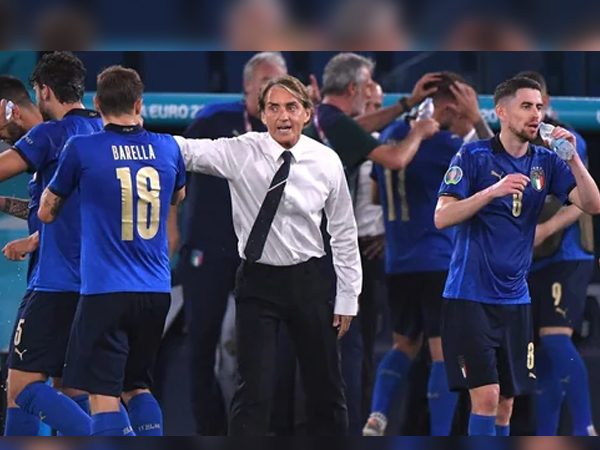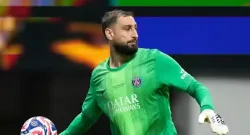
Picture Credit: Twitter
13th November 2017, Italy was trailing 1-0 against Sweden in a do-or-die World Cup qualifier in San Siro, Milan. Desperate to find an equalizer in the dying minutes of the game Gian Piero Ventura, the Italian manager asked his defensive midfielder, Daniele De Rossi to kit up and get ready to be subbed in. To his managers’ dismay, de Rossi refused to go on the field and told Ventura to rather get Lorenzo Insigne (the superstar winger from Naples) onto the field and did look like a more sensible decision. Instead, Ventura brought on Federico Bernardeschi and 14 minutes later Italy had failed to make it to the finals of the World Cup for the first time since 1958.
Amidst public outrage, 2 days later on 15th November 2017, the Italian Football Federation (FIGC) sacked G.P. Ventura, and on 20th November’17 the President of FIGC, Carlo Tavecchio resigned from his post. Luigi di Baglio was appointed as the Caretaker Manager, while the Italian Olympic Committee appointed Alessandaro Costacurta, the former A.C. Milan centre-back, for a stem to stern review of the FIGC. Names of legendary managers like Carlo Ancelotti, Antonio Conte were thrown into the mix to be the new Azzurri Manager, but after a 6-month long review, on 14th May 2018 Roberto Mancini (the guy who made Manchester City relevant) was appointed as the new manager of the Italian football team.
Mancini from his previous stints at Manchester City, Galatasaray, and Zenit is known to have sides that play entertaining, fluid football or as fans say “liquid footy”. Unlike his predecessor Ventura, the FIGC management was sure Mancini was going to be a far more authoritative figure in the Azzurri dressing room. During Mancinis’ first press conference as the Italian national team manager, Costacurta told the media that in Mancini they now had a manager who could make better in-game decisions and knows how to handle superstar footballers.
On 21st May’18, Mancini announced his squad for friendlies against Saudi Arabia & France and made a bold decision to bring back Mario Balotelli from his exile. Balotelli immediately repaid his manager's trust by scoring a goal in a 2-1 victory against Saudi Arabia. Mancini made another bold statement by making Gianluigi Donnarumma (the prodigal G.K. from A.C. Milan) his first choice goalkeeper in place of the legendary Gianluigi Buffon. After the Saudi Arabia game, a poor string of results followed for the Azzurri with 3 draws against Netherlands, Poland, Ukraine, and 2 losses against bitter rivals France and Portugal. Despite the results, the Italian fans were impressed by the brand of football their team was playing. They looked far more composed and organized under Mancini while dictating the game from midfield with the help of Jorginho, Marco Verratti, and young dynamo Nicolo Barella.
The Azzurri began their UEFA EURO 2020 qualification campaign with a comfortable 2-0 victory against Finland and from thereon went onto win their next 9 games of the qualifiers all while scoring 37 goals and conceding a mere 4 goals. Mancini went for a 4-3-3 formation to make his already defensively superior side a more attacking one. Under Mancini, the Azzurri started playing a fast-tempo, high-pressing, possession-based brand of football, which the Azzurri loyal started calling “Tiki-Italia”.
As Italy cruised through the qualifiers, many football clubs began showing their interest in Roberto Mancini. As a result, Gabriele Gravina, the FIGC President handed Mancini and his coaching staff a contract extension till June 2026. On 19th November’20, the Italians also progressed into the semis of UEFA Nations League while keeping a clean sheet in 4 of their 6 games. Before the beginning of the postponed EURO 2020, the Azzurri won their first 3 games of the FIFA World Cup qualifiers and extended their unbeaten run to 27 games. As a result of these impressive performances under Mancini, Italy jumped from 21st position to 7th position within a span of 3 years.
Coming to Euros, Italy was considered the dark horse to win it all. With a brilliant, all-around display of football, Italy cruised through the group stages of EURO 2020. Further, winning battles against Austria in the round of 16 and Belgium in quarterfinals, Italy booked its spot in the semifinal of the tournament. Heroic goalkeeping in the penalty shootout from Gianluigi Donnarumma (now 22) ensured that Italy will play in the final of a major international tournament for the first time since EURO 2012 final against Germany.
Roberto Mancini took over the side in 2018 that was scattered all over the place and has turned them into potential European Champions with an unbeaten record of 33 games, a record which is only bettered by the legendary Brazilian team of 1993-96 and the golden generation of Spain of 2007-09, which was unbeaten for 35 straight games. The Azzurri face the rejuvenated English side at the iconic Wembley Stadium on Sunday in the UEFA Euro 2020 final.
Is it coming home or going to Rome?




